-
Tornado threat in Tornado Alley can be eliminated by building walls: scientists
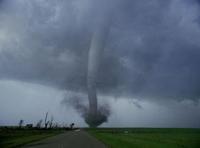
In the United States, most devastating tornadoes occur in Tornado Alley, which is a strip of land between the Appalachian Mountains and the Rocky Mountains, including most American Midwest states. In 2013, there were 811 confirmed tornadoes in the United States, 57 in Europe, and 3 in China. Among 811 tornadoes in the United States, most, especially the most devastating ones, occurred in Tornado Alley. Scientists say that building three 300 meter high and 50 meter wide walls, at the cost of about $160 million each — the first close to the northern boundary of the Tornado Alley, maybe in North Dakota; the second one in the middle, maybe in the middle of Oklahoma and going to east; the third one in the south of Texas and Louisiana – would significantly reduce, if not eliminate altogether, the threat of devastating tornadoes in Tornado Alley.
-
-
N.C. “rolling” 30-year sea level rise report gaining support from both sides
In 2010, coastal developers and Republican legislators in North Carolina were alarmed when a state science panel warned that the Atlantic Ocean is expected to increase by thirty-nine inches along the state’s shores by the end of the century. The state legislature soon ordered a four-year moratorium on official sea-level predictions and gave the Coastal Resources Commission(CRC) guidelines for developing a new official state forecast. In May, Frank Gorham III, chairman of the commission, announced that the next forecast will only predict sea-level rise for the next thirty years, a time span during which model-based predictions about sea level rise along the North Carolina coast – about eight inches — are largely accepted by both sides to the climate change debate. Gorham stresses, however, that he wants a “rolling” 30-year forecast to be updated every five years.
-
-
Chemical pollution of European waters is worse than anticipated
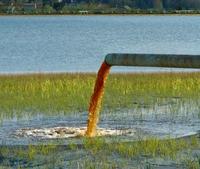
Until now environmental authorities and parts of the scientific community have considered toxic chemicals to be rather a local problem affecting only a few bodies of water. A new study, however, reveals for the first time on a large scale the ecological risks emanating from chemical toxicants for several thousands of European aquatic systems. Chemical toxicity represents an ecological threat to almost half of all European bodies of water, and in approximately 15 percent of cases, the biota in freshwater systems may even be subject to acute mortality.
-
-
Smart coating could make oil-spill cleanup faster and more efficient
In the wake of recent off-shore oil spills, and with the growing popularity of “fracking” — in which water is used to release oil and gas from shale – there is a need for easy, quick ways to separate oil and water. Now, scientists have developed coatings that can do just that.
-
-
Urban man-made drainage may increase risk of flooding
Installing drainage systems in developing towns and cities can cause water to reach rivers more quickly, potentially raising the risk of flooding, say scientists. They suggest that, in some cases, storm drains may do more to increase the risk of flooding than changes in the land surface.
-
-
Towns in northeast U.S. develop adaptation strategies for climate change
In many northeastern towns along the coast of the United States, local officials are attempting to identify and predict the effects of climate change which will occur over the next few decades. “You’re going to feel impacts. It’s a global issue with local effects…We don’t know exactly what’s coming, so let’s plan to be adaptable,” says a leader of a regional climate adaptation project.
-
-
Debate continues over controversial lawsuit-killing Louisiana oil bill
Governor Bobby Jindal (R-Louisiana) is facing a difficult decision over whether or not to veto a measure which would kill a contentious lawsuit filed by the Southeast Louisiana Flood Protection Authority-East (SLFPA-E) against ninety-seven different oil and gas companies regarding long-term environmental damage claims, including those of the 2010 Deepwater Horizon explosion.
-
-
Reducing use of nitrogen-based fertilizers helps combat climate change
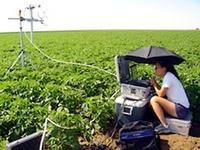
Nitrogen-based fertilizers spur greenhouse gas emissions by stimulating microbes in the soil to produce more nitrous oxide. Nitrous oxide is the third most important greenhouse gas, behind only carbon dioxide and methane, and also destroys stratospheric ozone. Agriculture accounts for around 80 percent of human-caused nitrous oxide emissions worldwide, which have increased substantially in recent years, primarily due to increased nitrogen fertilizer use. Scientists help farmers around the globe apply more-precise amounts of nitrogen-based fertilizer to help combat climate change.
-
-
Connecticut preparing for sea level rise, adapting to climate change
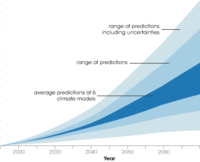
Earlier this year the University of Connecticut announced the creation of the Institute for Community Resiliency and Climate Adaptation. the Institute is designed to increase the resilience and sustainability of vulnerable communities and individuals along Connecticut’s coast and inland waterways as they are affected by the growing impact of climate change on the environment.
-
-
Nationwide effort launched to weather-harden Canadian cities
The frequency and magnitude of extreme weather events in Canada — from the floods in Southern Alberta and Toronto to the December ice storm in Central and Eastern Canada — are increasing, causing billions of dollars in damage to infrastructure, businesses and homeowners. Intact Financial Corporation and the University of Waterloo announced a national initiative involving the implementation of twenty climate change adaptation projects designed to reduce the physical, financial, and social impacts of extreme weather events in Canada.
-
-
Better building design, maintenance would cut building sector’s emissions by around 80%
The construction industry, which uses half of the 1.5 billion tons of steel produced each year, could slash its carbon emissions by as much as 50 percent by optimizing the design of new buildings, which currently use double the amount of steel and concrete required by safety codes. If buildings are also maintained for their full design life and not replaced early, the sector’s emissions could in total be cut by around 80 percent.
-
-
New material captures CO2 at natural gas wellheads
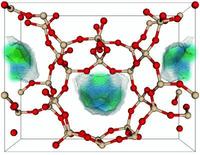
Natural gas is the cleanest fossil fuel. Development of cost-effective means to separate carbon dioxide during the production process will improve this advantage over other fossil fuels and enable the economic production of gas resources with higher carbon dioxide content that would be too costly to recover using current carbon capture technologies. Rice University chemists invented a porous material which sequesters carbon dioxide, a greenhouse gas, at ambient temperature with pressure provided by the wellhead, and lets it go once the pressure is released. The material shows promise to replace more costly and energy-intensive processes.
-
-
Hurricanes with female names deadlier than male-named storms
In the coming Atlantic hurricane season, watch out for hurricanes with benign-sounding names like Dolly, Fay, or Hanna. According to a new study, hurricanes with feminine names are likely to cause significantly more deaths than hurricanes with masculine names, apparently because storms with feminine names are perceived as less threatening.
-
-
Sea level rise, not Hurricane Sandy impacts, main cause of subsequent East Coast storm flooding
Flooding in coastal areas bordering Great South Bay, New York, and Barnegat Bay, New Jersey caused by winter storms that occurred following Hurricane Sandy was not influenced by changes Sandy made to barrier islands or other bay features, according to a new U.S. Geological Survey study. “While the existing barrier island and inlet system shield the mainland to a great extent from the daily tides, most of the storm surge, and all long-term changes in water level, such as those resulting from sea level rise, reach the mainland,” say the study’s authors.
-
-
Extreme weather events threaten U.S. national landmarks
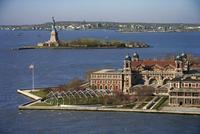
Rising seas, floods, and wildfires are threatening the U.S. most cherished historic sites — from Ellis Island to the Everglades, Cape Canaveral to California’s César Chávez National Monument. Scientists say that today these sites face an uncertain future in a world of rising sea levels, more frequent wildfires, increased flooding, and other damaging effects of climate change. At some sites — such as Liberty and Ellis Islands and Cape Hatteras — steps have already been taken to prepare for these growing climate risks. At many other sites, such efforts have not yet begun.
-
- All
- Regional
- Water
- Biometrics
- Borders/Immig
- Business
- Cybersecurity
- Detection
- Disasters
- Government
- Infrastructure
- International
- Public health
- Public Safety
- Communication interoperabillity
- Emergency services
- Emergency medical services
- Fire
- First response
- IEDs
- Law Enforcement
- Law Enforcement Technology
- Military technology
- Nonlethal weapons
- Nuclear weapons
- Personal protection equipment
- Police
- Notification /alert systems
- Situational awareness
- Weapons systems
- Sci-Tech
- Sector Reports
- Surveillance
- Transportation
Advertising & Marketing: advertise@newswirepubs.com
Editorial: editor@newswirepubs.com
General: info@newswirepubs.com
2010-2011 © News Wire Publications, LLC News Wire Publications, LLC
220 Old Country Road | Suite 200 | Mineola | New York | 11501
Permissions and Policies
Editorial: editor@newswirepubs.com
General: info@newswirepubs.com
2010-2011 © News Wire Publications, LLC News Wire Publications, LLC
220 Old Country Road | Suite 200 | Mineola | New York | 11501
Permissions and Policies
